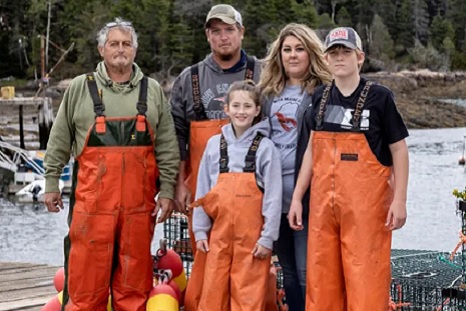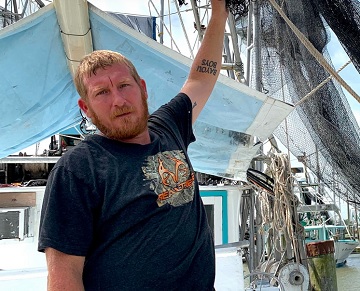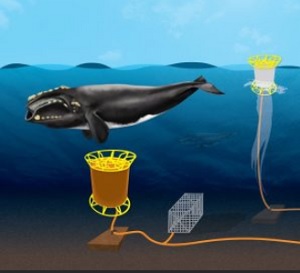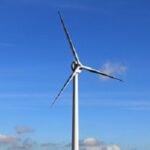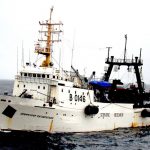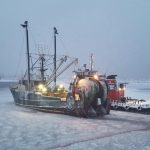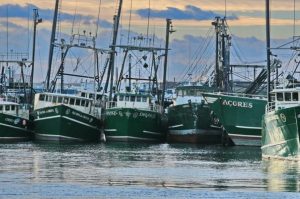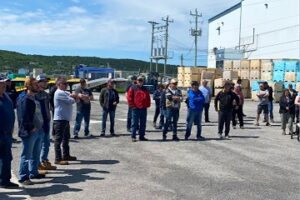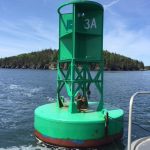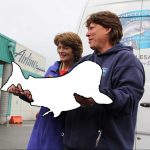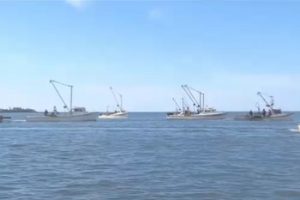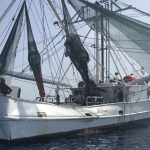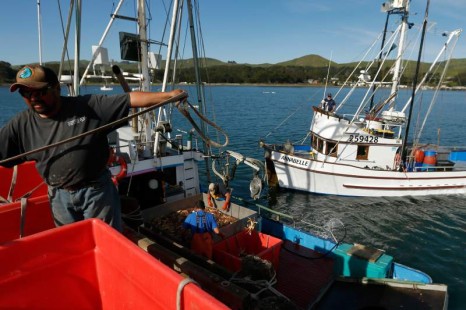Tag Archives: Biden Administration
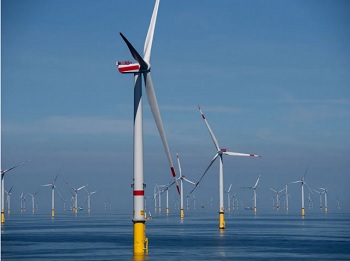
Offshore Wind Farms in New England Create Headaches for Both Man and Beast
“I don’t think ever in history has there been such a massive alteration of the ecosystem in such a short amount of time,” says the executive director of New Jersey-based Clean Ocean Action, Cindy Zipf. “We’re looking at 3,500 turbines as tall as the Chrysler Building, 2.2 million acres of ocean, and 10,000 miles of cable just in the Northeast in just the next seven years.” At the center of the conflict is the North Atlantic right whale and other endangered marine mammals that the Commerce Department’s National Oceanic and Atmospheric Association National Marine Fisheries Service are charged with protecting. Fewer than 350 right whales are left in the Atlantic Ocean, according to the fisheries service. >click to read< 08:14
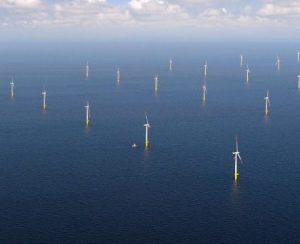
Doomed to Fail: In the Northeast and Mid-Atlantic, a quiet reckoning over offshore wind
Crippling European electricity prices, soaring Northeastern heating bills, looming diesel-fuel shortages, and OPEC+ drama have captured headlines for months. More quietly, offshore-wind energy developers are discovering their projects’ economic infeasibility, undermining states’ offshore-wind goal of generating 40,000 MW by 2040. The Biden Administration must recognize this is a pipe dream, or it will cost Americans billions trying to salvage an industry doomed to fail. October brought the first sign of troubles,,, Massachusetts’ Commonwealth Wind, Mayflower Wind project, New Jersey Ocean Wind. All three project developers originally negotiated prices far above wholesale market prices. All three qualified for a production tax credit and additional offshore-wind state tax credits. All three will qualify for a new 30 percent offshore wind investment tax credit which was not available when they made their initial bids. Yet this federal and state largesse has still failed to keep the projects afloat. >click to read this< 18:17

DC Power Couple Threatens Maine Lobster
Whenever someone promises two for the price of one, the savvy consumer is naturally suspicious. Should the same suspicion not extend to the newest transmogrification of the Washington “power couple”? It is, after all, just the latest evolution of the shell game hucksters once played on street corners. As more than 5,000 Maine lobster-fishing families prepare for the coming holidays with existential worry, The Maine Wire this week highlighted perhaps the apex predator of DC power couples: White House Chief-of-Staff Ron Klain and spouse Monica Medina, assistant secretary of state for oceans and international environmental and scientific affairs, who has been a driving force in the campaign to eradicate lobster-fishing. >click to read< 15:28
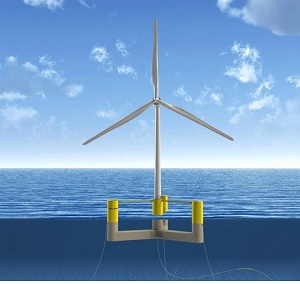
Say no to blood money
New England Aqua Ventus, a joint venture between Diamond Offshore Wind, a subsidiary of the Mitsubishi Corporation, and RWE Renewables, the second largest company in offshore wind globally, was formed to develop UMaine’s floating offshore wind technology demonstration project. The Biden administration is dumping trillions of taxpayer dollars into offshore wind initiatives and offshore wind companies are big donors to environmental causes which was, without a doubt, one reason for Bigelow’s decision to grant this easement to NEAV. Eliminating our lobster industry clears the way for a Gulf of Maine filled with windmills. These global companies are financially supporting the environmental groups that are driving the North Atlantic Right Whale risk reduction measures aimed at eliminating Maine’s lobster industry. >click to read< By Patty Minerich 08:27

Save our way of life
In case you haven’t been paying attention, hundreds of billions of dollars are being spent at the federal and state level on offshore wind development. The Biden and Mills administration is 100% committed to reimagining our historical marine economy into a new “green” economy made up of aquaculture and offshore wind power generation. If you don’t believe me, flip through the federal Inflation Reduction Act (what an excellent oxymoron) and Biden’s 2021 Infrastructure Investment and Jobs Act. Make no mistake, eliminating the lobstering industry through the Right Whale risk reduction regulations paves the way for offshore wind development >click to read< By Patty Minerich, Boothbay Harbor 17:33

Save Right Whales from Radical Environmentalists Who Exploit Them
Americans agree with protecting the endangered Northern Atlantic right whale. But true conservation efforts don’t necessitate displacing lobstermen and recreational anglers in the process. With fewer than 350 whales left, ambulance-chasing opportunists masquerading as conservationists conveniently swoop in on the whale’s behalf only to leave economic —and environmental—destruction in their paths. This endangered whale requires protection from radical environmentalists who exploit them. Preservationists purporting to care about its well-being, however, distort the threats posed to the whales. >click to read< 08:06
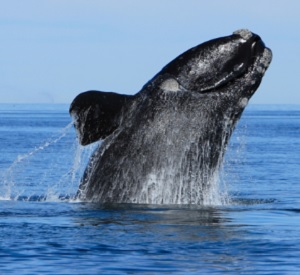
Proposed Virginia offshore wind farm threatens North Atlantic Right Whales
The proposed Coastal Virginia Offshore Wind Project is directly in the NARWs’ annual migration path. Dominion Energy has applied to erect 176 wind turbines, covering an area of approximately 10 miles by 15 miles—equal to the size of 85,000 football fields or the city of Tampa, Florida—located 27 miles off the coast of Virginia Beach. Each turbine will sit atop a monopole extending a minimum of 80 feet into the water and about 120 feet into the ocean floor, and its height above the water will top 620 feet. That’s higher than the Washington Monument, which is 555 feet tall. “How to kill whales with offshore wind?” Wojick asks. “Just push them into traffic. The collision deaths would not be directly attributable to the wall of noise created by the OSW project, so who would know?” >click to read< 08:55

Island’s fate tied to fishing, residents say: “I think we’re being pushed out”
Make way for windmills. That was one of the worries aired by Deer Isle-Stonington fishermen and small business owners who attended a breakfast economic development meeting at the Stonington town office Friday. A few residents and small business owners said they think the fishing industry is being pushed out to make room for windmills, thus further advancing green energy agendas that Governor Janet Mills and the federal government have adopted. Mike Shepard said he started fishing at age 10 in a “little outboard.” “I’m almost 70 now,” the lobsterman said. “I fished all my life out here. All that time I’ve been fishing. I’ve never seen a whale. It has nothing to do with the whale, it has to do with what they want to do with our waters out here. They want to go green and it’s killing the lobster industry, which is our way of life.” >click to read< 19:36
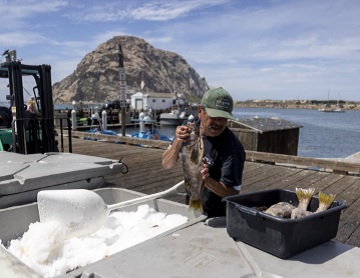
California Offshore Wind Projects Face Hurdles as Pressure Groups, Industry Interests Weigh In
As the Biden administration plans for the country’s first West Coast offshore wind turbines, interests ranging from commercial fishing fleets to powerful environmental groups are complicating the road ahead for the California projects. Some fishermen are worried about losing access to swaths of rich fishing grounds, where they would have to stop towing nets that could get caught on underwater cables. Lori Steele, executive director of the West Coast Seafood Processors Association, said offshore wind power projects threaten an industry that also must deal with depleted fish stocks and soaring coastal real-estate prices. “We’re struggling to make sure that people understand that, just because you can’t see it, that doesn’t mean it’s not having an impact,” she said. There is early discussion about creating fishing compensation funds, similar to ones created by East Coast projects for financial losses, “but the industry doesn’t want to be bought out,” she said. >click to read< 08:08
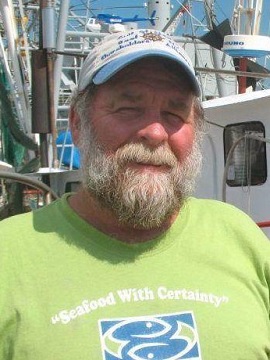
Commercial fishermen sounding alarm about snapper stocks
If you had asked me five years ago if I was worried about red snapper populations in Texas, I would have said “no.” But I’m not that optimistic today. Fishery managers have gotten complacent, forgotten where we came from and have put self-interests above conservation and sustainability. Our fish stocks are in decline, our commercial fishing voices are being squashed and our fishery managers are playing politics with our livelihoods. We expect fair representation at the decision-making table. What do we have instead? Only one truly commercial fishing representative on the 17-member Gulf of Mexico Fishery Management Council. >click to read< 10:52
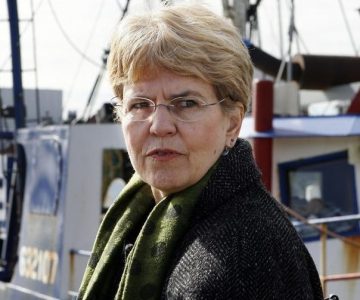
“Trust the science,” say the media – Scientific ‘integrity’
Polls show that fewer Americans do. There’s good reason for that. Environmental activists want to limit commercial fishing. They want Congress to pass what they call the “Ocean-Based Climate Solutions Act.” It claims climate change is the “greatest threat to America’s national security” and offers a dubious solution: close more of the ocean to commercial fishing. The administration’s deputy director of Climate, Jane Lubchenco, told Congress that a scientific paper concludes that closing more of the ocean can actually increase catches of fish. Really? That doesn’t seem logical. It isn’t. The paper was retracted. One scientist called its logic “biologically impossible.” Also, Lubchenco’s didn’t tell Congress that the paper was written by her brother-in-law! And edited by her! >click to read< 09:00
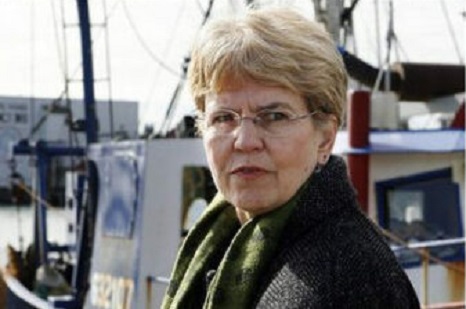
Top Biden Climate Adviser Sanctioned by National Academy of Sciences for Ethical Violations
Jane Lubchenco, the deputy director for climate and environment at the White House’s Office of Science and Technology Policy, was sanctioned by the National Academy of Sciences (NAS) on August 8, Axios reported. Lubchenco’s sanction stemmed from a violation of the NAS’ code of conduct. Specifically, Lubchenco edited a paper that appeared in the NAS’ peer-reviewed journal, Proceedings of the National Academy of Sciences, in 2020; but the paper did not use the most recent available data, and Lubchenco had a personal relationship with one of the researchers in violation of the journal’s editorial policies. Axios adds that one of the researchers was Lubchenco’s brother-in-law. >click to read< 09:46
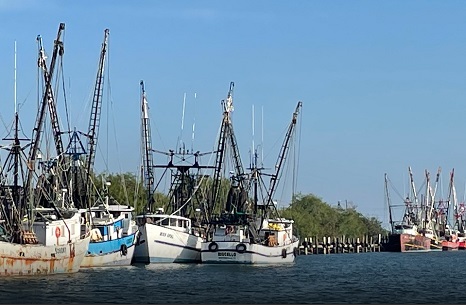
Texas: New shrimp season tangled up in regulations
That plate of fried shrimp people enjoy at a restaurant –whether locally or away from home – could either be taken off the menus or cost a lot more. The tastier Gulf shrimp caught by trawlers off the Texas Gulf Coast from the Brownsville/Port Isabel to the Palacios areas could also be replaced by farmed-raised crustaceans. That’s because this South Texas industry – one of the nation’s largest – is caught in the middle of a crisis caused by today’s U.S. immigration policies and by what is going on in countries south of Mexico. The expected arrival of hundreds of people who traditionally work on the boats, known as shrimp headers, is on halt right now; yet the kickoff of the 2022 season is about two weeks away. >click to read< 17:53
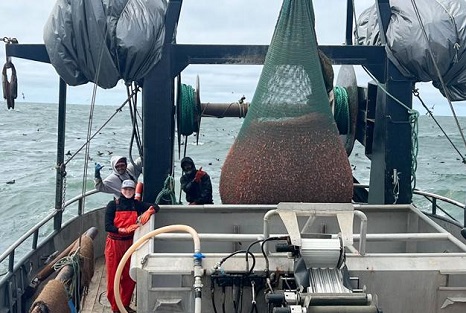
Floating offshore wind generator proposals worry fishing industry
From her home overlooking Yaquina Bay on the Oregon coast, Kelley Retherford can watch as commercial fishing boats arrive at the nearby Port of Newport, delivering their catch to one of several seafood processors that line the waterfront. Saltwater is in her family’s blood, she said. Along with her husband, Mike, and their four adult children, they own and operate four fishing trawlers, harvesting everything from Pacific whitefish and hake to pink shrimp and Dungeness crab. That way of life, however, may be disrupted by a growing interest in offshore wind generators to help achieve ambitious government-mandated zero-carbon energy goals. photos, >click to read< 18:50
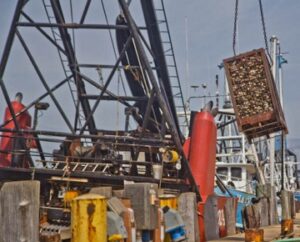
Offshore wind farms could reduce Atlantic City’s surfclam fishery revenue up to 25%
New research from Rutgers University shows Mid-Atlantic surfclam fisheries could see revenue losses from planned offshore wind farms, at least in the short- to medium-term after the development takes place. The data is sure to fuel opposition from the fishing industry to the Biden administration’s rapid offshore wind development along the New York, New Jersey, and Delaware coasts. President Joe Biden has a goal of generating 30 gigawatts of wind energy by 2030 as part of his effort to tackle climate change. Clammers and scallop fishermen fear a shrinking patch of fishable ocean will lead to the collapse of the industry. >click to read< 14:03
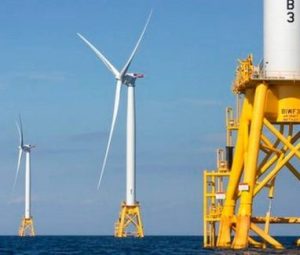
Wind farm, groups agree on whale protections
The developers of an offshore wind farm and three environmental organizations announced Monday that they have reached an agreement to further protect rare North Atlantic right whales during construction and operation of the energy-generating project. The agreement involving Orsted and Eversource, developers of South Fork Wind off the coast of New England and New York, was signed by the National Wildlife Federation, the Natural Resources Defense Council and the Conservation Law Foundation, the groups said in a joint statement. >click to read< 21:08
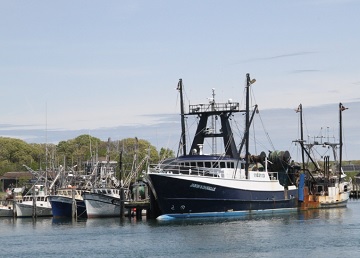
Commercial Fishermen Wary Of Proposed Sanctuary For Hudson Canyon
The Biden Administration has renewed a longstanding proposal,,, Even though most of the Hudson Canyon is about as far from the South Fork as Queens and Brooklyn, commercial and recreational fishermen from East End ports frequent the waters above it, and news of the sanctuary nomination was met with some reflexive concern from commercial fishermen, in particular, who worry that if the designation is made it could lead to them eventually being blocked from fishing in an area critical to their annual harvests. “About 25 percent of what we catch is from there, squid, scup, fluke, a lot of stuff comes out of that area,” said Hank Lackner, one of the owners of Montauk’s largest commercial fishing trawlers, the 94-foot Jason & Danielle. “And for the local fleet, the mid-sized trawlers, that’s the end of their rope — that’s as far as they can go. They don’t have another option.” photos, >click to read< 17:58
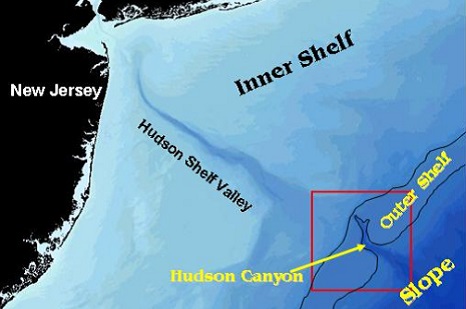
US citizens will suffer from a Hudson Canyon Marine Sanctuary
On June 8 th, the Biden Administration announced its newest attack on American small businessmen by declaring the Hudson Canyon region as a protected marine sanctuary. The Hudson canyon is the largest and deepest canyon on the US east coast, about the size of the Grand Canyon. It was created by the outflow of the Hudson River over the course of millions of years and because it is one of the most biologically diverse ecosystems on the east coast, it is also one of the best fishing grounds. In a non-sensible announcement of Biden’s plan, NOAA Administrator Richard Spinrad, joyously proclaimed that “A sanctuary near one of the most densely populated areas of the Northeast U.S. would connect diverse communities across the region to the ocean and the canyon in new and different ways”. How many different fisheries are going to be affected by a Hudson Canyon Closure? Every one of them. By Jim Lovgren >click to read the article< 17:39
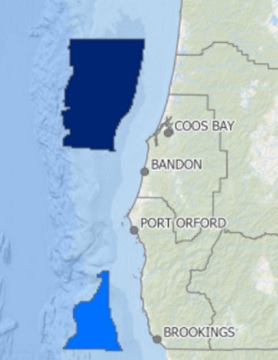
Sites off Coos Bay, Brookings targeted for offshore wind farms by Biden Administration
Two areas off the Oregon Coast are being targeted to host offshore wind farms as the Biden administration seeks to ramp up renewable energy production. The U.S. Department of the Interior announced Wednesday that the locations being identified to potentially host wind farms are about 12 nautical miles offshore Coos Bay and Brookings. The areas comprise about 1.16 million acres (468,787 hectares) in total. Interior Secretary Deb Haaland described the upcoming steps taken toward possible leasing off the coast of Oregon as “another opportunity to strengthen the clean energy industry while creating good-paying union jobs.” Bullshit, Lady. >click to read< 12:39
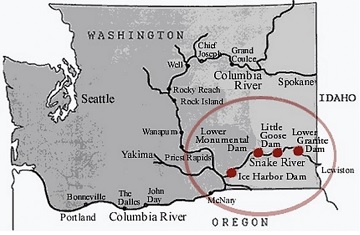
Call for tearing out lower Snake River dams gaining support in D.C. and WA state
For more than two decades Eastern Washington residents have heard proposals to tear out the lower Snake River dams, but only recently has the idea gotten bipartisan support in the nation’s capital, said Rep. Dan Newhouse, R-Wash.,,, In the Puget Sound, he said he sees signs scattered along roadways with an X through the words “Snake River Dams.” That support from people who don’t understand what the dams mean to Eastern Washington is coupled with growing Congressional support and interest from the Biden administration, he said. Because the dams are federal infrastructure, their future is a federal issue. >click to read< 09:40
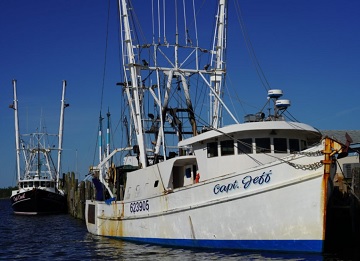
North Carolina: Offshore wind turbines interfere with ships’ radar, ability to navigate
Gov. Roy Cooper and the Biden Administration want to make North Carolina carbon neutral by 2050, and President Biden’s ambitious plans to combat climate change lean heavily on offshore wind generation. The turbines could be a problem for fishermen. North Carolina’s fishing industry has largely been cautious in criticizing the wind turbines, saying it wants to wait for more information. “Demolition derby on the high seas thanks to offshore industrial wind turbines? Amy Cooke asked. “Add maritime navigation and radar challenges to the long list of reasons, including high cost, unreliability, environmental damage and misleading nameplate capacity, as to why offshore industrial wind is absolutely horrible public policy.”>click to read< 11:13
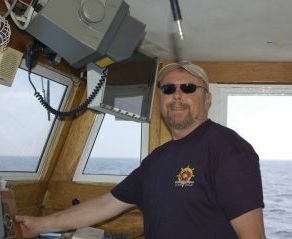
Who is the real Saudi Arabia of Wind? By David Goethel
I read the February 16th article by Teddy Rosenbluth, “New Hampshire is blowing its chance at offshore wind”, from the Concord Monitor, with interest and wished to offer some comment, both to the media covering New Hampshire, and the readers. By way of introduction, I am a research biologist and 54-year fisherman, both recreational and commercial, in the Gulf of Maine. First, I want to publicly thank both Governor Sununu and his energy spokesman, Assistant Commissioner of NH Dept. of Environmental Services, Mark Sanborn for taking a wise stand on collecting biological, ecological, economic and social implications of offshore wind development before leasing vast tracts of the Gulf of Maine. This stand is in marked contrast to other coastal governors and the Biden Administration, as well as European states, which have adopted a stance of build first and study later. >click to read< 20:18
Repeating the agenda “talking points”: Advocates say NH is blowing its chance at offshore wind – The Gulf of Maine, an area with strong and reliably blowing winds, is what Sen. David Watters called the “Saudi Arabia of wind.” >click to read<
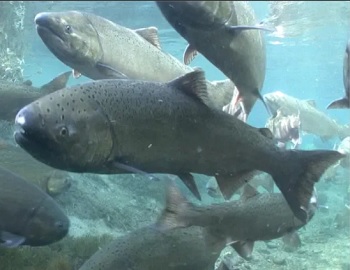
Critics rip feds’ “half-baked” plan to save California salmon
Fishing groups and water suppliers fought the Biden administration’s proposed drought rules for California’s water system, telling a federal judge Friday the emergency plans won’t stop the demise of endangered salmon. The rules call for new water temperature targets and improved collaboration between federal and state officials on the management of California’s two main water conveyance systems. But the Pacific Coast Federation of Fishermen’s Associations and other conservation groups cast the “interim operations plan” as a half-baked measure that will lead to a third consecutive year of salmon die-offs. >click to read< 17:36
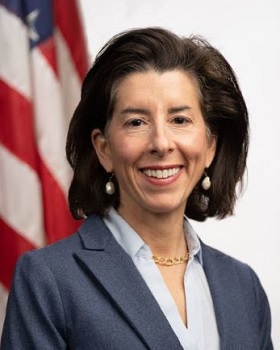
Graves seeks Federal Fishery Disaster Determination for Louisiana
U.S. Rep. Garret Graves recently urged the Biden Administration to declare a Fishery Disaster Determination that would provide targeted relief to one of Louisiana’s most impacted sectors and help both commercial and recreational fishers begin to recover from myriad disasters. “Our fishermen have taken a pounding over the last several years. Hurricanes, floods, unfair trade practices, over-regulation, and a global pandemic have delivered a major blow to our workforce and consumer demand,” Rep. Graves wrote in a Jan. 20 letter sent to U.S. Secretary of Commerce Gina Raimondo. Under law, only the Commerce Secretary can make this determination,,, >click to read< 08:18






